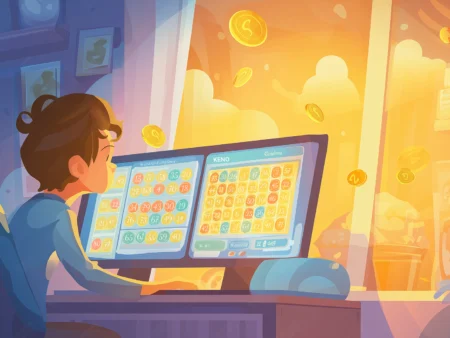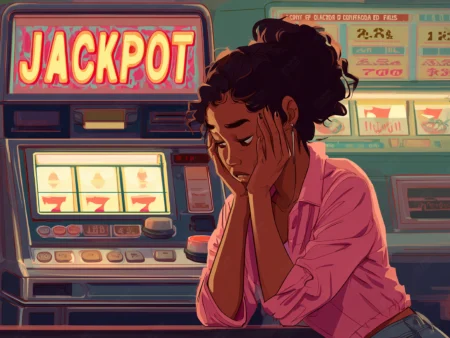You’re holding a 10. Dealer shows a 6.
Your fingers hover near the chips, double or just hit?
This decision isn’t about instinct. It’s one of the most critical moves in blackjack, the kind that separates average players from those who consistently walk away ahead. Because knowing when to double down in blackjack isn’t just a nice-to-know tactic, it’s a core weapon in your strategy arsenal.
The reality? Most players get it wrong. They double too late, too often, or skip it when it matters most. The move is simple, double your bet, take one card, but the timing? That’s where the edge lives.
If you’ve ever second-guessed a double, or walked away thinking, “I should’ve pulled the trigger”, this guide is for you.
We’ll cover:
- When to double (hard and soft hands)
- When not to double, and why
- How table rules change everything
- The psychology behind the hesitation
- And yes, a double down chart you can use while playing
Let’s break it down.
Table of contents
- What Does “Double Down” Actually Mean, And Why It Matters
- When to Double Down in Blackjack (Hard Hands vs. Soft Hands)
- The Worst Times to Double (And Why Most Players Still Do)
- Table Rules That Change Everything
- The Psychology of Doubling Down
- Quick-Reference: Blackjack Double Down Chart
- Play Where Doubling Pays: Blackjack-Friendly Casinos
- Bonus Tip: Avoid Betting Systems That Break Your Bank
- What Actually Works? Strategy That Scales
- Final Word: Double Down Like a Pro, Not a Tourist
- Blackjack Double Down FAQ: Straight Answers for Smart Players
What Does “Double Down” Actually Mean, And Why It Matters
At its core, doubling down is simple: you double your original bet and commit to exactly one more card, no more hits, no second chances. It’s a high-stakes move with one goal: maximize your edge when the odds are on your side.
But here’s the kicker, most players never master the double down strategy. They throw it out randomly when they’re feeling lucky or skip it entirely when the numbers say go. That’s where the edge leaks.
Used correctly, doubling down amplifies your advantage, especially when the dealer is showing a weak upcard like a 5 or 6, and you’ve got a strong total like 10 or 11. That’s not a gamble, it’s leverage.
And the house knows it.
That’s why many tables restrict your options: only allowing doubles on 9–11, or pushing 6-to-5 payouts instead of 3-to-2. Because skilled players who double at the right times? They cost the house over the long run.
Blackjack tip: Smart doubling isn’t flashy, it’s consistent. And over hundreds of hands, that edge stacks up.
So if you’re still treating the double like a coin flip? You’re leaking value every session.
When to Double Down in Blackjack (Hard Hands vs. Soft Hands)
Doubling down isn’t a mystery, it’s a calculated bet based on two things: your total and the dealer’s upcard. But not all hands play the same. To use the move effectively, you’ve got to handle hard hands and soft hands with different strategies.
Hard Hands, Your Power Moves
Hard hands don’t include an Ace counted as 11, so if you hit, you risk busting. That’s why your double down windows are narrower but more profitable when played right.
Here’s where the smart money lives:
- Hard 9 vs. Dealer 3–6
The dealer’s showing weakness, and you’ve got a solid shot at 19+. That’s a green light every time. - Hard 10 vs. Dealer 2–9
You’re ahead unless the dealer pulls a 10. Step on the gas and press the edge. - Hard 11 vs. Dealer 2–10
This one’s nearly automatic, you’re just one card away from 21.
Caution: If the table doesn’t allow doubles vs. an Ace, tread carefully, unless Double After Split (DAS) is allowed, in which case it’s still strong.
Example: You’ve got a 10. Dealer shows 6.
That’s a textbook double, weak dealer, big draw potential. This isn’t a gamble, it’s pure +EV.
Soft Hands, Trickier, But Profitable
Here’s where hesitation creeps in, soft hands in blackjack. These include an Ace counted as 11 (e.g., A-5 = soft 16). You’re less likely to bust, which opens up some juicy doubling spots if you know where to look.
The key is to double soft 13–18 (A-2 through A-7) when the dealer shows 4, 5, or 6, classic bust cards. Most players just hit here out of habit. That’s a leak.
Why the hesitation?
Because a soft 17 doesn’t feel strong. But in these matchups, the math is on your side, and this is exactly where the double down strategy pays off over time.
Double Down Decision Table
| Your Hand | Dealer Upcard | Action |
| Hard 9 | 3–6 | Double |
| Hard 10 | 2–9 | Double |
| Hard 11 | 2–10 | Double |
| Soft 13–18 | 4–6 | Double |
Doubling on soft hands might not feel intuitive, but that’s exactly why most players miss the edge. Stick to the strategy, trust the chart, and make the moves while everyone else plays scared.
The Worst Times to Double (And Why Most Players Still Do)
Doubling down feels aggressive, and that’s exactly why players misuse it. They chase big payouts instead of reading the board. But when you double in the wrong spot, it doesn’t just cost chips, it kills your edge.
Here’s when not to double, and why even sharp players still fall into the trap.
1. Don’t Double Against Strong Dealer Upcards
When the dealer’s showing a 9, 10, or Ace, they’re in control. They’ve got a high chance of landing 19+, and unless you’re sitting on 11, you’re just hoping for a miracle.
- Hard 10 vs. Dealer 10 or Ace? Looks tempting, but you’re betting two units for a coin flip, or worse.
- Hard 11 vs. Dealer 10? Still good.
- Hard 11 vs. Dealer Ace? Only if DAS is allowed and surrender’s off the table.
Mistake to avoid: Doubling 10 vs. 10. Too many players take the bait, and end up watching their bankroll bleed.
2. Never Double Hard 12 or Higher
This is where players start to get creative, and that’s dangerous.
“I’ve got 12 and the dealer has 4. Maybe I double and hit a 9?”
Bad idea.
- Hard 12+ is too fragile. One wrong card and you’re busted.
- Even if you land a mid card, you’re still hoping the dealer busts, not playing from strength.
Stick to hit or stand based on basic strategy. Don’t turn a marginal situation into a two-unit mistake.
3. Avoid the “Looks Good But Isn’t” Hands
These are hands that feel strong, but don’t perform when doubled:
- Soft 19 (A-8) – Nice hand, but doubling rarely outperforms standing.
- Soft 20 (A-9) – You’re already ahead. Don’t get greedy.
- Pairs like 5-5 – Looks like a split, but really it’s a hard 10. Only double vs. a weak dealer (4–6), otherwise play it straight.
Trap hands like these are where disciplined players win over time.
The Cost of Over-Doubling
Every time you double without edge, you’re not just betting wrong, you’re compounding mistakes.
Smart blackjack isn’t about betting big, it’s about betting when the odds are real. And truth is, most of your long-term gain from doubling comes from avoiding the wrong spots, not just hitting the right ones.
Stay disciplined, play the math, and you’ll outperform 90% of the table, no smoke, no streaks, just smart EV.
Table Rules That Change Everything
Blackjack might look the same from one table to the next, but the house rules underneath can flip your strategy upside down.
Whether you’re playing live or online, it’s not just about your hand, it’s about what the rules let you do with it. And ignoring the fine print? That’s how you end up doubling down in all the right spots… and still losing over time.
Here are the rules that matter most, and how they impact your double down strategy.
Can You Double After a Split (DAS)?
This one’s huge, especially when you’re dealt pairs like 8-8 or 9-9.
On a DAS table, if you split a pair and draw a strong hand (say, a 3 on an 8 = 11), you can still double down. That opens the door to high-EV plays, particularly when the dealer is showing a weak upcard.
Without DAS, you’re handcuffed, even if the math screams “double.”
Example: You split 8s. One hand gets a 3, dealer shows 6.
If DAS is allowed, that’s a prime double. If not, you’re forced to just hit or stand.
Bottom line: DAS tables give you more ways to press your edge. Always check this rule before you play.
What About “Double on Any Two Cards”?
Some tables restrict doubling to totals of 9–11 only. Sounds harmless, until you’re holding A-6 (soft 17) vs. dealer 5 and can’t double.
That’s a profitable hand, gone cold.
Tables that allow doubling on any two cards let you attack with both hard and soft hands, giving you more control across more scenarios.
Pro tip: A table that limits doubling = a table that limits your upside.
When picking a blackjack game (online or live), make this rule non-negotiable.
Watch for 6-to-5 Blackjack
This isn’t just about double down rules, it’s about everything being tighter.
At a 6-to-5 table:
- Blackjack pays 1.2x instead of 1.5x
- House edge increases by over 1%
- You’ll often see:
- Doubling limited to 9–11
- DAS banned
- Resplitting restricted
It’s a quiet squeeze, but it stacks up fast. You’re betting more and getting less across the board.
If you care about strategy, avoid 6-to-5 tables.
You’re paying more for worse odds, and sacrificing your best moves.
Want the Full Picture?
These rules don’t just affect your double downs, they impact every decision at the table.
Check out our Blackjack Strategy guide, a sharp breakdown of mastering blackjack under real-world rules. It’s the difference between guessing and knowing.
The Psychology of Doubling Down
Even when the math screams double, most players hesitate. They second-guess the move, default to just hitting, and play it safe.
Why? Because doubling down isn’t just strategic, it’s psychological. And this is where many players quietly lose their edge.
Fear of Losing Big
Doubling means putting more money on the line. Simple as that.
So when you’re chasing losses or playing with a tight bankroll, fear takes over. Even with a textbook double, like 11 vs. dealer 6, many players fold mentally. They worry about busting, dwell on past hands, and play to protect, not to win.
But blackjack doesn’t reward fear. It rewards consistency.
Real talk: If you’re too afraid to double in +EV spots, you’re not playing to win, you’re playing to survive. And the house loves that.
Tilt and Overcorrection
Now flip the scenario.
You’ve been losing for an hour. The table’s cold. You pull hard 9 vs. dealer 5 and think:
“Screw it, I’m due, let’s double.”
That’s not strategy, that’s tilt.
Tilt causes players to chase, overcorrect, and ignore the math. It can lead to reckless doubles or overly cautious folds, either way, you’re off-script and out of rhythm.
Smart players recognize tilt in real time. They pause. Reset. Trust the chart, not the emotion.
How the Pros Treat the Double
Pros don’t double because it feels right, they double because it is right.
They factor in:
- Hand value
- Dealer’s upcard
- Table rules (like DAS, resplits, H17 vs. S17)
And then they execute, with zero hesitation.
No ego. No tilt. Just repeatable, disciplined decisions.
That’s the difference between recreational play and pro-level edge.
Want to play like that?
- Keep your double down chart within arm’s reach
- Stick to the math
- Silence the noise, emotion, streaks, and gambler’s fallacies
That’s how winning players build their edge, one solid, boring, profitable decision at a time.
Quick-Reference: Blackjack Double Down Chart
Here’s your no-BS cheat sheet for when to double down in blackjack, broken down by hand type and dealer upcard. No fluff, no guesswork, just the highest-EV plays based on time-tested basic strategy.
Blackjack Double Down Chart
Hard Hands
| Your Hand | Dealer Upcard | Action |
| 9 | 3–6 | Double |
| 10 | 2–9 | Double |
| 11 | 2–10 | Double |
| 11 | Ace | Hit (unless DAS is allowed) |
Soft Hands
| Your Hand | Dealer Upcard | Action |
| A-2 to A-3 | 5–6 | Double |
| A-4 to A-5 | 4–6 | Double |
| A-6 | 3–6 | Double |
| A-7 | 3–6 | Double (stand otherwise) |
| A-8 to A-9 | — | Never Double, just stand |
This chart highlights the most profitable double down opportunities, the hands where putting in that extra bet actually increases your edge over time.
These aren’t gut moves. They’re backed by real math and proven across thousands of hands.
Want to keep this by your side while you play? Bookmark it, perfect for fast reference before your next blackjack session.
Whether you’re grinding online or sitting at a live table, this chart kills hesitation and keeps your game sharp, one decision at a time.
Play Where Doubling Pays: Blackjack-Friendly Casinos
You can master the double down strategy, memorize the chart, and play every hand perfectly, but if you’re sitting at the wrong table, none of it matters.
That’s the harsh truth.
Table rules define your ceiling, especially when it comes to doubling. And too many online casinos quietly stack the odds against you with tight, player-unfriendly rules that kill your edge.
So where should you actually play?
Look for blackjack-friendly casinos that offer these features:
Double After Split (DAS)
This one’s non-negotiable.
DAS opens up profitable double opportunities after splitting, especially with pairs like 8-8 or 9-9. Without it, you’re forced to play strong post-split hands passively. That’s wasted EV.
Late Surrender
While not directly tied to doubling, late surrender gives you an escape hatch in bad spots, especially vs. dealer 10s or Aces.
More flexibility = fewer forced losses = better long-term performance.
Low House Edge (Favorable Ruleset)
Seek out tables that offer:
- 3:2 blackjack payouts (never 6:5)
- Dealer stands on soft 17 (S17 > H17)
- Double on any two cards
- Resplit Aces allowed
These tweaks may seem small, but combined, they cut the house edge under 0.5%, and that gives your smart doubles real weight behind them.
Ready to play where your edge actually matters?
Check out our top blackjack casinos with the best double down rules, hand-picked for players who think long-term and play smart.Don’t just bring better decisions to the table, bring them to the right table.
Bonus Tip: Avoid Betting Systems That Break Your Bank
You’ve heard it at the tables, someone swearing by Martingale, 1-3-2-6, or some other “can’t lose” system.
Here’s the truth: these systems don’t beat blackjack. They just camouflage variance until it catches up with you, and when it does, it hurts.
Martingale
Double your bet after every loss until you win.
Sounds logical, until you hit five losses in a row, and your table limit (or bankroll) says “you’re done.”
It’s not strategy. It’s compounding risk under pressure. One cold streak, and you’re wiped out.
1-3-2-6
More structured. Less aggressive. Still flawed.
This system rides imaginary streaks in a game with independent outcomes. Works fine… until it doesn’t.
And if you’re adjusting double downs to fit the system, you’re just layering risk on risk.
Doubling After Losses
Too many players treat double downs like “get even” buttons.
Bad hand? Double. Still behind? Double again.
That’s not strategy, that’s emotional chasing disguised as logic. And the house knows how that ends.
What Actually Works? Strategy That Scales
Want a real, repeatable edge? Stick to the math.
The best blackjack strategy doesn’t chase streaks, it identifies high-EV spots and plays them consistently.
For a deeper dive into optimal hands, decision-making, and long-term edge…
Check out our Ultimate Blackjack Chart, your road map to smarter hands, not just bigger bets.
Final Word: Double Down Like a Pro, Not a Tourist
Blackjack isn’t roulette. You’re not betting on hope, you’re playing with leverage.
And when it comes to leverage, doubling down is where the edge lives, but only if you do it right. That means:
- Knowing your hands
- Reading the dealer
- Respecting table rules
- And silencing the tilt
Most players guess. They double late. They miss spots. Pros don’t.
So here’s the move:
Learn the chart
Master the spots
Ignore the noise
Press the advantage when the math says so
Play at Blackjack Casinos That Reward Skilled Players
Don’t just bring your game, bring it somewhere that lets it thrive.
Explore our top blackjack casinos with DAS, 3:2 payouts, and low house edge.
Smart blackjack isn’t about playing more, it’s about playing better.
Blackjack Double Down FAQ: Straight Answers for Smart Players
The go-to doubles are when you have 11 against any dealer card except an Ace, 10 against dealer 2–9, and 9 against 3–6. These spots are high-EV and backed by decades of real-world data.
Avoid doubling on hard 12 or higher, the bust risk is too high. Also skip doubling soft 19 (A-8), soft 20 (A-9), and any time the dealer shows a 10 or Ace unless you’re holding 11.
No. It creates the illusion of recovery, but one bad streak drains your stack or hits the table limit. It’s not blackjack strategy, it’s bankroll roulette.
Because they slash your payouts, increase the house edge by over 1%, and usually come with tighter rules like limited doubling. If you’re serious about blackjack, 6-to-5 is a dealbreaker.
Only as a last resort. Doubling for less kills your expected value. If you can’t afford to double properly, you’re playing too high, drop down a level where you can press advantage without hesitation.












































